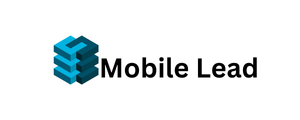Who has never been influenced by a brand to make a purchase, right? This happens because, even though we are different human beings, we have similar stimuli, motivations, emotions and desires that, when activated, lead us to take an action.
If you have a website or an online store, you certainly want to attract more and more visitors and turn them into customers, right?
To do this effectively, there are several digital marketing resources and strategies to help belgium phone number library in this process. One of them is mental triggers that drive people to take action based on stimuli.
Mental triggers are not used to manipulate or hypnotize the public, or to force them to make a purchase, for example. But rather, to grab their attention and transform visitors into customers .
Have you ever stopped to think about the number of people who visit your website authority in the age of ai generated content do not take any action, whether it is an institutional website or an e-commerce? In 2024, the average documented rate of online shopping cart abandonment is 70.19% according to the Baymard Institute .
This happens not only in e-commerce, but also on institutional websites , where leads often register on forms and then disappear. A high abandonment rate represents a lost opportunity for both sales and lead generation.
There are several digital marketing resources and strategies to help you in the clean email of captivating this customer. One of them is mental triggers that encourage people to take action based on stimuli.
In this post, we’ll teach you what it is, when and where to use it, and the 15 best examples of mental triggers for you to use in your company’s digital marketing. Keep reading!
free google ads ebook tupiniquim agency banner woman
What you will read about Mental Triggers:
How do mental triggers work in marketing and sales?
15 Examples of Mental Triggers
Where can Mental Triggers be used?
Frequently Asked Questions
What are mental triggers?
Have you ever noticed that you tend to perform actions automatically every day? For example, when you wake up every day, you brush your teeth. Note that this and other routine actions are already in our brain, even if unconsciously.
